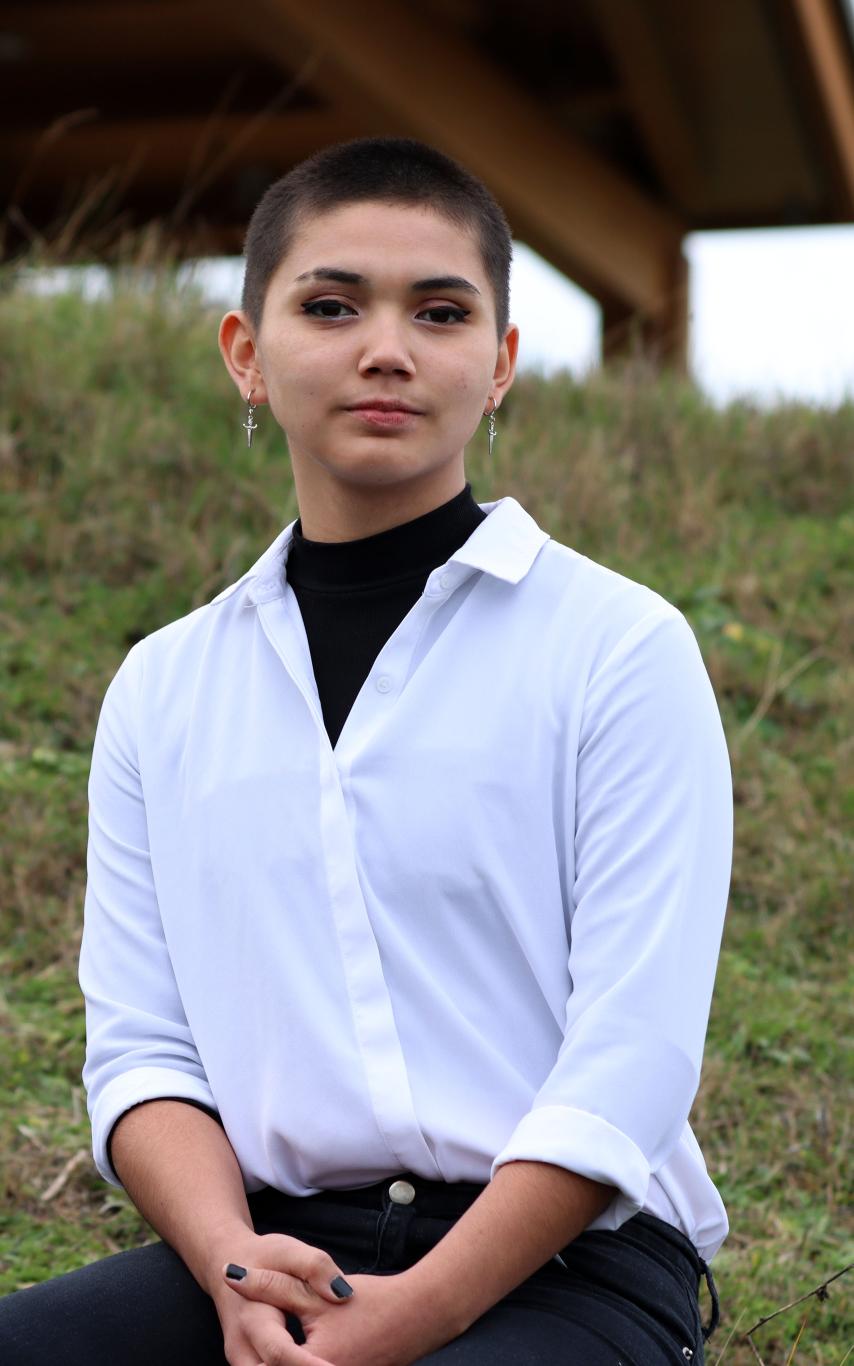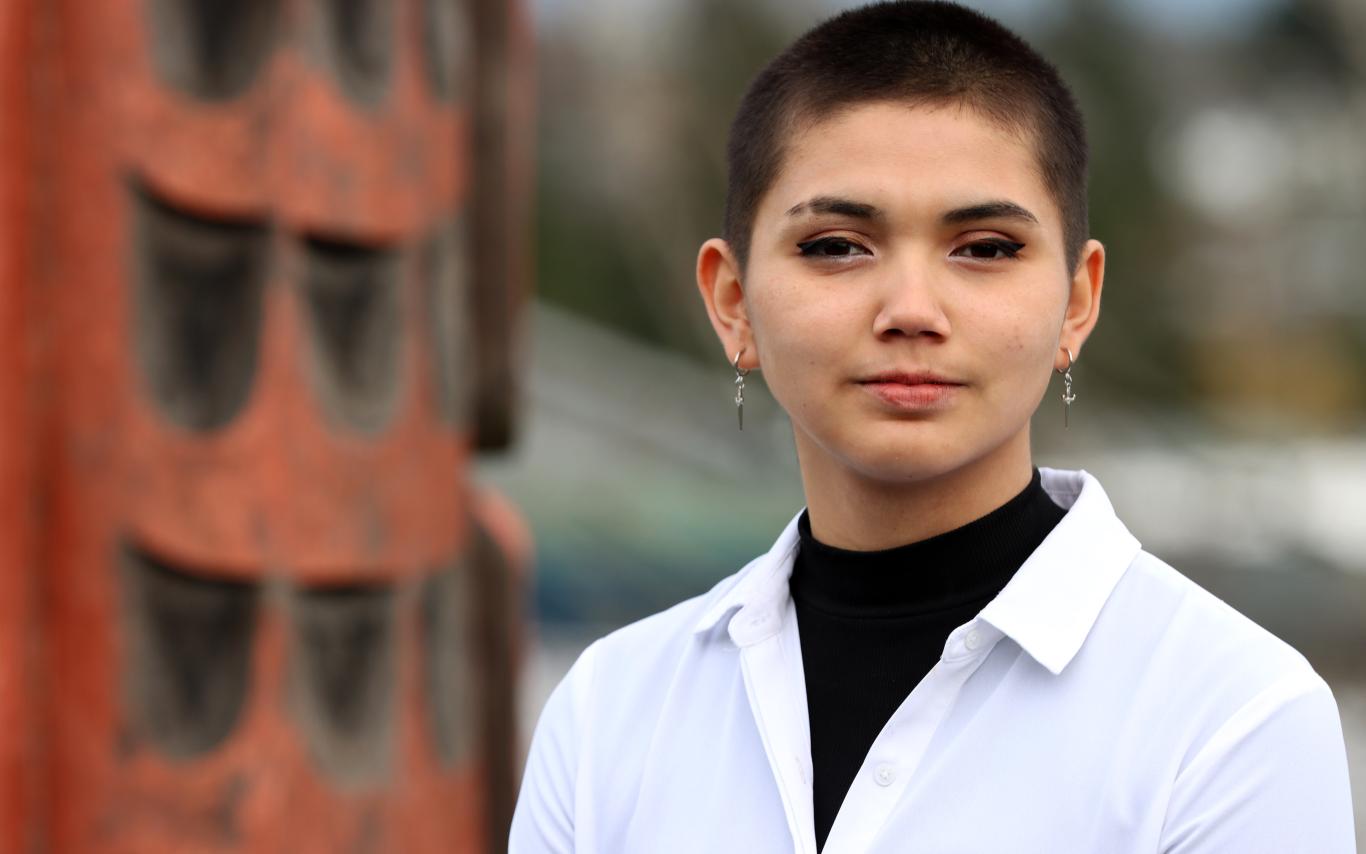Celebrating Indigenous mentorship at VIU
Vancouver Island University’s ‘su’luqw’a’ Community Cousins Aboriginal student mentorship program celebrated its 10th anniversary in September 2021. In honour of this important milestone, we are sharing stories of people closely connected with the program every month. Stay tuned for a celebration event in March 2022 – when we hope to be able to gather in-person.
The ‘su’luqw’a’ Community Cousins program builds capacity for mentors to gain leadership and employability skills through outreach and mentoring activities. Students hone skills in self-awareness, communication, leadership, self-care and an exploration of personal values, with an emphasis on “telling one’s story” as a path to self-empowerment through outreach to others.
Talela Manson has wanted to be a Community Cousin ever since she joined VIU’s Thuy’she’num Tu Smun’eem: Building a foundation for our Youth summer camp in 2017, when she was in Grade 9.
Talela, from Snuneymuxw First Nation, heard about the camp through her grandfather Gary Manson, a VIU Elder-in-Residence who supports the program.
“From day one, it felt like a place I belonged and could thrive in,” says Talela. “Going from high school into university is definitely stressful and scary and induces a lot of anxiety, so having people you can learn from and who have gone through the same feelings as you makes you feel less alone.”
The 18-year-old is now an Exploratory Studies student at VIU. Talela says getting familiar with the environment in advance through the camp as well as her grandfather – who she lives with and who has taken her to campus with him throughout the years – made a huge difference in how her first semester has gone.
“It was like I belonged somewhere before I even started to choose a school,” she says. “A big part of VIU that caught my eye was Shq’apthut [VIU’s Aboriginal Gathering Place] and the Community Cousins. In a lot of other schools, I didn’t really see a big Indigenous presence on campus.”
Talela is still exploring potential careers, but she’s leaning towards working in the medical field, perhaps as a laboratory technician. She’s also still figuring out what to do with the extra freedom that comes with being a university student, compared to the more structured world of high school. While her focus moving forward will be on the sciences, the course she enjoyed the most in her first semester – surprisingly – is English.
“I’ve always struggled with it, to have fun writing, but I realized this semester it’s about finding the right teachers and the right group,” she says.
Aside from her studies, Talela hopes to get back into soccer this year – she’s been playing for almost a decade but put competitive play and travelling on hold due to COVID. She also plans to continue solidifying her connections to culture by continuing to learn Hul’qumi’num through her grandfather.
“Language is something you are supposed to be connected with as an Indigenous person,” she says. “Having it taken away with nowhere to learn it is a hard thing to see. Having a language teacher in my own home is something I’m really proud of.”
One of Talela’s favourite Hul’qumi’num phrases is “Uy Kwanus ilumnama u’ tun’a kw’eyul” which translates to, “It’s good to see you today.”
“Just having someone say this to you is good medicine on its own but hearing it in the language is a step further,” she says. “It’s nice to hear it, especially from my grandfather.”

“From day one, it felt like a place I belonged and could thrive in. Going from high school into university is definitely stressful and scary and induces a lot of anxiety, so having people you can learn from and who have gone through the same feelings as you makes you feel less alone.”




